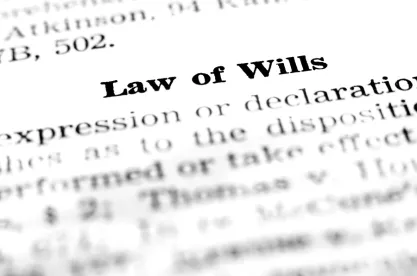In Fox v. Fox, a father deeded real property in Louisiana to one of his sons. No. 14-18-00672-CV, 2020 Tex. App. LEXIS 2211 (Tex. App.—Houston [14th Dist.] March 17, 2020, no pet. history). The father later died, and his sons had a dispute regarding whether the deed was effective. A different son was his executor in Texas, and the son that was the recipient of the gift filed a declaratory judgment petition in his estate to establish that the deed was effective. The executor filed a plea to the jurisdiction, arguing that the Texas court did not have jurisdiction over the deed concerning real property in Louisiana. The trial court granted the plea, and an appeal was filed.
The court of appeals first discussed the various statutes that may provide jurisdiction:
The court exercising original probate jurisdiction also has jurisdiction of all matters related to the probate proceeding as specified in Section 31.002 for that type of court.” Tex. Est. Code § 32.001(a). The term “probate proceeding” includes, among other things: (1) “the probate of a will, with or without administration of the estate”; (2) “an application, petition, motion, or action regarding the probate of a will or an estate administration, including a claim for money owed by the decedent”; (3) “the settling of a personal representative’s account of an estate and any other matter related to the settlement, partition, or distribution of an estate”; and (4) “a will construction suit.” Id. § 31.001(1), (4), (6), and (7). A matter related to a probate proceeding includes, among other things, “an action for trial of the right of property that is estate property,” and “any cause of action in which a personal representative of an estate pending in the statutory probate court is a party in the representative’s capacity as personal representative.” Id. § 31.002(a)(6), (c)(2).
Casey also cites the Uniform Declaratory Judgments Act (“UDJA”). Under the UDJA, “[a] court of record within its jurisdiction has power to declare rights, status, and other legal relations whether or not further relief is or could be claimed.” Tex. Civ. Prac. & Rem. Code § 37.003(a). The UDJA’s “purpose is to settle and to afford relief from uncertainty and insecurity with respect to rights, status, and other legal relations; and it is to be liberally construed and administered.” Id. § 37.002(b). “A person interested under a deed, will, written contract, or other writings constituting a contract or whose rights, status, or other legal relations are affected by a statute, municipal ordinance, contract, or franchise may have determined any question of construction or validity arising under the instrument, statute, ordinance, contract, or franchise and obtain a declaration of rights, status, or other legal relations thereunder.” Id. § 37.004(a). Further, “[a] person interested as or through an executor or administrator, including an independent executor or administrator, a trustee, guardian, other fiduciary, creditor, devisee, [*9] legatee, heir, next of kin, or cestui que trust in the administration of a trust or of the estate of a decedent . . . may have a declaration of rights or legal relations in respect to the trust or estate . . . to determine any question arising in the administration of the trust or estate, including questions of construction of wills and other writings.” Id. § 37.005(3).
Id. The court also noted that “Texas courts notably lack subject matter jurisdiction to adjudicate title to interests in real property situated outside Texas. On the other hand, a Texas court with jurisdiction over the parties may enforce a party’s personal or contractual obligation that indirectly involves property in another state, such as when a Texas court compels a party over whom it has jurisdiction to execute a conveyance of a real property interest located in another state.” Id. The court opined:
Whether a lawsuit falls into the former or latter category generally depends on the extent to which “resolution of issues specific to the land” are involved.” If ownership of non-Texas real property interests is more than merely incidental or collateral to the claims, as well as the measure of right of any recovery, then the court lacks jurisdiction. To determine the extent to which title and possession are involved, we look to the nature of the suit, the injury complained of, and the relief sought, together with any relevant evidence. Regardless how the claimant frames the pleading allegations, we examine the “basis of his right to recover judgment,” and if the “gist” of a claim for damages is based on an adjudication of title to out-of-state real property interests, then a Texas court lacks jurisdiction.
Id.
Based on this legal backdrop, the court held that the core of the plaintiff’s claims all arose from a title dispute, and that the court did not have jurisdiction:
[T]he alleged 1998 deed lies at the core of Casey’s purported right to recover judgment against the estate. Ownership of the Louisiana Property is very much placed in dispute by Casey’s amended petition because his core complaint is that he has been deprived of his claimed interest in the Louisiana Property. Casey contends that he has owned the property since 1998 and seeks a declaration to that effect. He seeks breach of warranty damages necessarily based on an alleged warranty contained in the 1998 deed declared null and void in 2010 by the Louisiana district court. These claims are based on the purported validity of the 1998 deed and seek resolution of the disagreement between Casey and Thomas as to who owns the Louisiana property—a matter decided a decade ago in Louisiana. Casey’s pleadings coupled with the unrefuted evidence negates jurisdiction, and the trial court correctly dismissed Casey’s claims for lack of subject matter jurisdiction.
Id.




 />i
/>i

